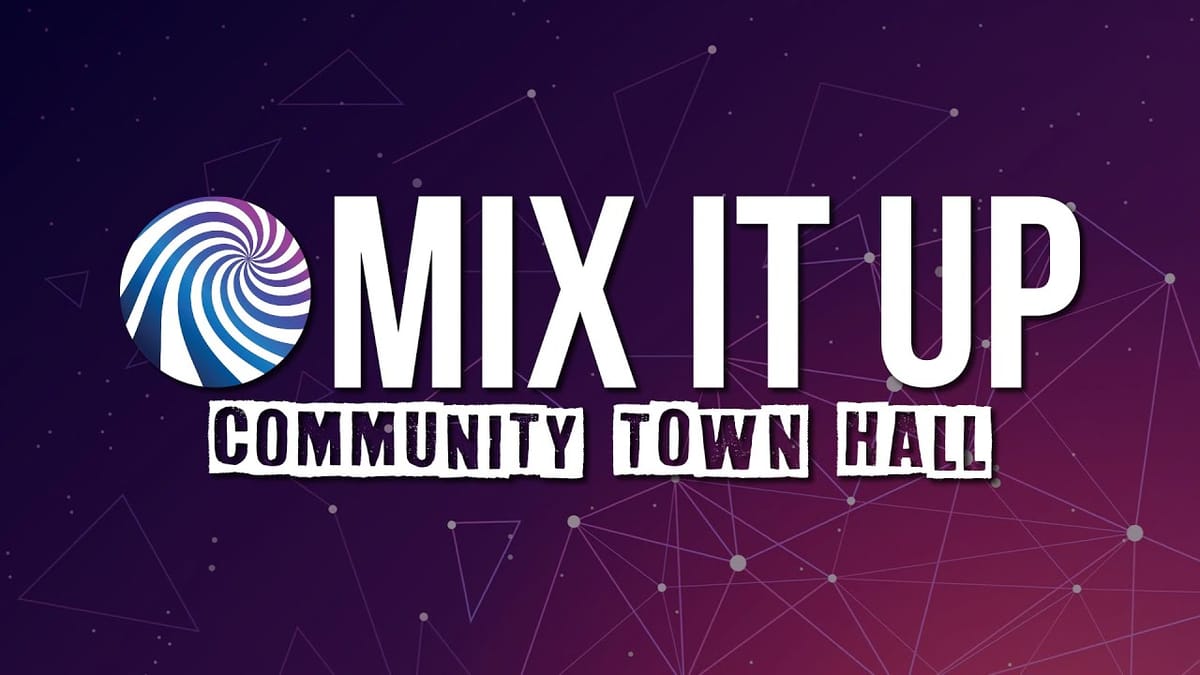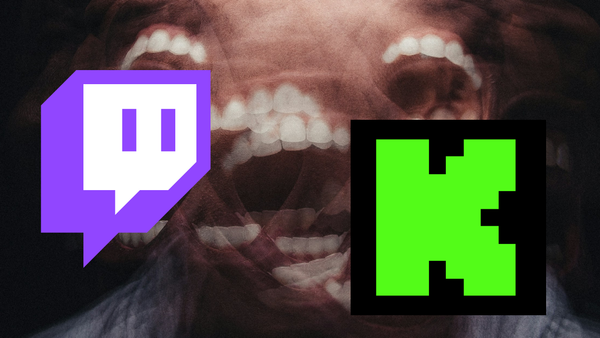My Takeaways from the Mix It Up Town Hall - What's Really Going on Behind the Scenes
Mix It Up's town hall revealed the bot serves 60,000 monthly streamers but costs $10K yearly to run. With original developers stepping back, remaining lead Tim showed rare transparency about finances and future plans while promising to keep core features free.

So I just watched the Mix It Up town hall, and wow.
If you missed it, you need to watch this thing. Tim, the remaining developer behind Mix It Up, basically laid everything on the table in a way that most companies would never dare to do. We're talking full transparency about finances, development challenges, and what the future actually looks like for one of the streaming community's most popular bots.
The reality check we all needed
Here's something that blew my mind: Mix It Up serves 60,000 streamers every month. That's not just people who downloaded it once - that's active monthly users. Tim mentioned that "every single day, every 24 hours, there is roughly, give or take about 14,000 streamers that use Mix It Up."
Think about that for a second. When this thing started, Tim said they "peaked at maybe a hundred users" in the entire first year. Now they're processing "millions upon millions of commands being run, actions, tens of millions of events all going through this bot."
That's incredible growth, but it also explains a lot about why things have been rocky lately.
The developer situation is more complex than anyone realized
The big news everyone's been whispering about finally got addressed head-on. Savior XTaran and Tyron have stepped back from development. But Tim was quick to clarify: "Both for personal reasons and, you know, both very amicable. We are still, we still talk to one another. Sometimes daily, mostly weekly."
This wasn't some dramatic exit or falling out. Life happens. But it does mean that Tim is essentially carrying the entire development load by himself now, which explains the six-month gap in updates.
What really struck me was his honesty about the challenge: "I just didn't have time. And that's very literal did not have hours in the day." Between his day job and trying to keep Mix It Up running, something had to give.
The financial transparency was absolutely wild
Most software projects would never share this level of detail, but Tim broke down exactly what it costs to run Mix It Up: "roughly about $10,000 a year."
But here's the kicker - until recently, that was being covered entirely out of pocket through other business ventures. As Tim explained, "the company that Mix It Up runs under also does many other things... a lot of times all of those would just go towards subsidizing Mix It Up."
The Patreon situation really shows how disconnected the community was from the financial reality. They went from "either 15 or 16 patrons" making about $60 a month to 88 patrons contributing over $400 monthly - all in the span of a week after the announcement.
The commitment to keeping it free is genuine
One thing Tim kept hammering home: "Mix it up is going to be free to use. We are not going to pay wall it. We are not going to feature limit you."
He was almost emphatic about this, saying "I could not sleep at night knowing that that level of greed had kind of overtaken me." That's not corporate speak - that's someone who genuinely cares about the community they've built.
The Kick support explanation finally makes sense
Everyone's been asking about Kick support forever, and Tim finally explained why it's been such a challenge. Unlike Twitch or other platforms that use persistent connections, Kick's webhook system requires "exclusive dedicated infrastructure on our part because we then have to maintain a connection to the people that are using that service."
Basically, they'd need bigger, more expensive servers just to handle Kick's architecture. Tim was honest: "Long story short it was going to be a very expensive service for us to implement."
But he also gave hope: "once we get mix it up to a place of sustainability on the financial side, those are going to be things that we look at adding in."
The development roadmap actually sounds realistic
Instead of promising the moon, Tim laid out a practical approach:
First priority: "Trovo connectivity, responsive voice, getting that back up and going. The issues we've been having with Twitch reconnection... getting those resolved is going to be top of my list."
Then: streamlining the update process so "if something's broken, I want to be able to fix it immediately and I want to be able to get that out to you guys within a matter of minutes."
Long-term: cross-platform support and "Mix It Up 2.0" - but only after expanding the dev team again.
The community response has been incredible
What really came through in the town hall was how overwhelmed Tim seemed by the positive response. He mentioned that when the announcement went out, "it was all positive. And I don't mean just the comments, I mean like the repost, the shares, everything was just all positivity and support."
That's rare in today's social media landscape, and it says something about the Mix It Up community.
Be sure to have a look at the website for Mix It Up and see how it could help you in your next live stream!
The support system overhaul sounds promising
The current Discord support situation has clearly been a mess. Tim admitted: "it took me the better part of five minutes just to get a handle on what requests were still open, who was working them, and what hadn't even been touched yet."
The new plan involves a two-tier system: a general community chat for quick questions and a proper ticketing system for complex issues. Initially, the ticketing system will be available to Patreon supporters, but it sounds like they plan to expand it once they work out the kinks.
What this means for the streaming community
Mix It Up has become infrastructure for a huge chunk of the streaming community. People have invested hundreds of hours setting up their configurations, and many streamers depend on it for their daily content creation.
Tim clearly understands this responsibility. He said: "for a lot of you the bot you choose and the time you spend and invest in setting up that bot... that is the beating heart and soul of your stream."
My honest take on all this
Watching this town hall, I was struck by how refreshingly honest Tim was about everything. Most companies would have spun this into corporate speak about "exciting new directions" or "strategic partnerships." Instead, we got raw numbers, real challenges, and genuine uncertainty about the future.
But here's what gives me confidence: the community response shows that Mix It Up has built something genuinely valuable. When you can go from 16 Patreon supporters to 88 in a week just by being honest about your situation, that's not luck - that's a community that recognizes real value.
The development approach also sounds sustainable. Instead of trying to build everything at once, Tim's focusing on fixing what's broken and building a foundation for future growth. That's smart.
The bigger picture
This whole situation highlights something important about the streaming tool ecosystem. We rely on these tools every day, but most of us have no idea what it takes to keep them running. Mix It Up's transparency about costs and challenges should make all of us more aware of the infrastructure that supports our content creation.
Tim's commitment to keeping the core features free while being honest about the costs of premium services feels like a model other developers should follow. It's sustainable, it's honest, and it respects the community that's grown around the tool.
Bottom line
If you use Mix It Up, go watch this town hall. If you don't use Mix It Up but you care about streaming tools in general, still watch it. It's a masterclass in honest communication with your user base.
And honestly? After watching Tim handle this situation with such transparency and genuine care for the community, I'm optimistic about Mix It Up's future. Sometimes the best thing you can do is tell the truth and trust your community to respond appropriately.
In this case, it looks like that trust was well-placed.





